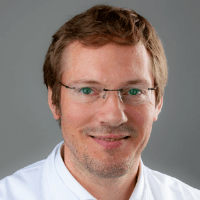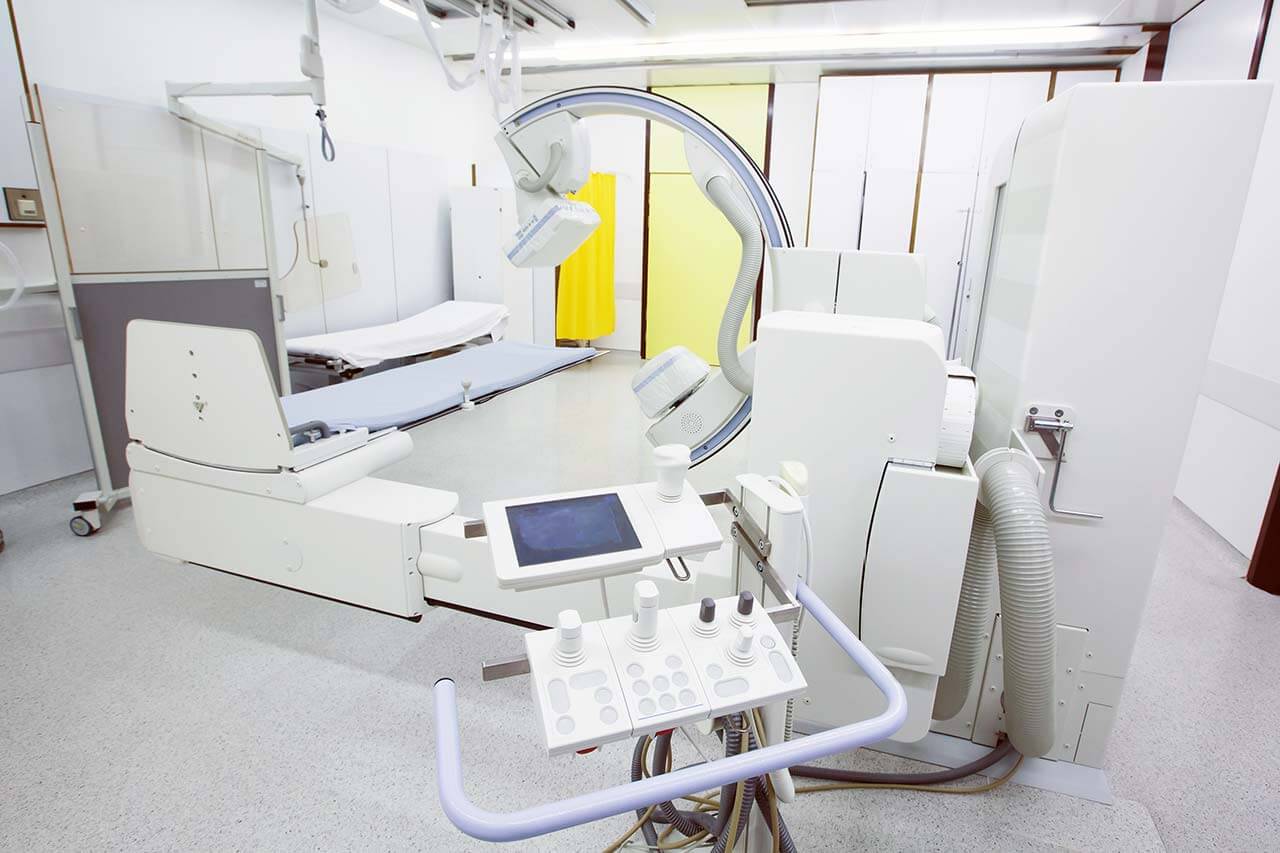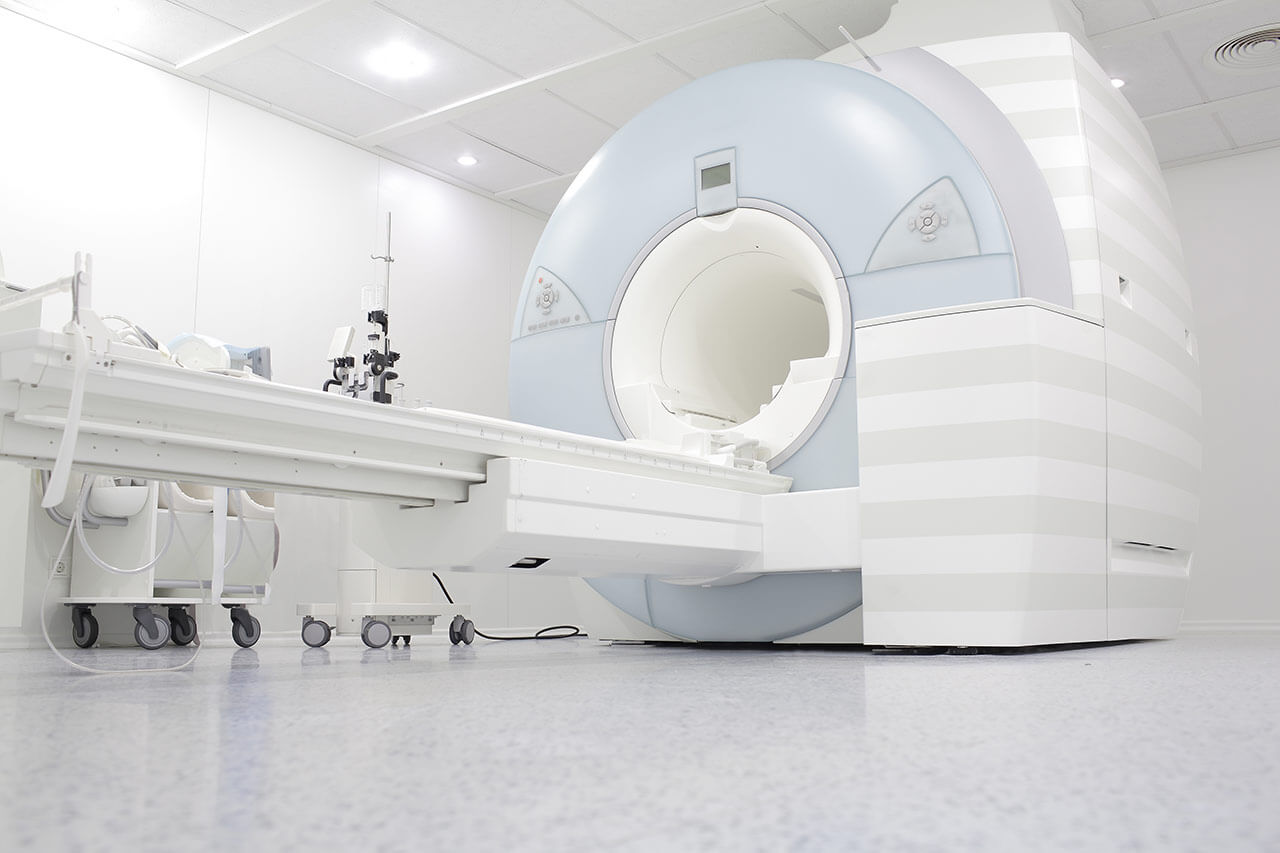
About the Department of Neurology at Hannover Medical School (MHH)
The Department of Neurology at the Hannover Medical School offers the full range of services for the diagnostics and treatment of diseases of the central and peripheral nervous system. The treatment of strokes, infectious diseases of the nervous system, brain tumors, herniated discs, compression syndromes, neuromuscular diseases, chronic headaches, epilepsy, multiple sclerosis, Parkinson's disease, and amyotrophic lateral sclerosis is of particular interest to the department's neurologists. The department has 90 beds, 12 of which are intended for patients of the certified Stroke Unit. Medical care is provided by a competent team of professionals with vast clinical experience and unique knowledge in their specialization. The department provides both inpatient and outpatient treatment, as well as emergency medical care. The department is headed by Prof. Dr. med. Günter Höglinger.
One of the most common neurological diseases is a stroke. To provide the most effective treatment of this pathology, the department has an advanced Stroke Unit, which is the certified interregional Stroke Center. More than 1,200 patients with acute stroke receive medical care here every year. The Stroke Unit provides comprehensive treatment, including thrombolytic therapy, mechanical implantation of stents to restore blood supply to the affected areas of the brain (recanalization) and other therapeutic methods. It should be noted that the department demonstrates excellent results in the treatment of stroke and a high survival rate, therefore it has a good reputation both at national and international levels.
The department's neurologists quite often deal with the treatment of benign and malignant brain tumors. When brain tumors are detected, a treatment regimen is developed at an interdisciplinary tumor board, in which neurologists, neurosurgeons, neuroradiologists, radiologists, oncologists, radiation therapists and other highly qualified specialists take part. The department's doctors have at their command many modern therapeutic methods for cancer treatment, including chemotherapy, radiation therapy, treatment with immune checkpoint inhibitors, and targeted therapy. In cooperation with neurosurgeons, microsurgical and stereotactic radiosurgical interventions are performed to remove malignant brain tumors. Prior to choosing a particular treatment method, the doctors accurately study the diagnostic data (CT, MRI, PET scans) that allows them to assess the activity of the brain, the localization of the affected area of the brain, vascular changes, tumor boundaries, stage of the oncological process, tumor size, presence or absence of metastases. After completing the course of treatment, the patient must regularly undergo follow-up examinations for the prevention or early detection of recurrence.
The team of the department's neurologists is rightfully proud of the high treatment success rates in movement disorders. The specialists of the medical facility carry out diagnostics and treatment of all types of movement disorders, including idiopathic and atypical Parkinsonian disorders, tremor, chorea, dystonia and spasticity. To make an accurate diagnosis, an individually selected set of diagnostic tests is used: clinical examination, gait analysis, electrophysiological studies, genetic tests, extended laboratory diagnostics, imaging tests (MRI, FDG-PET, SPECT, etc.). The therapeutic offer in this field includes the use of an individually selected regimen of drug therapy, physiotherapy, occupational therapy. Pump therapy (apomorphine, levodopa) in Parkinson's disease is also successfully used. Deep brain stimulation for Parkinson's disease, dystonia and tremor is performed in collaboration with neurosurgeons. The therapy for spasticity is based on botulinum toxin injections and intrathecal baclofen therapy.
The department's key clinical focuses include:
- Diagnostics and treatment of cerebrovascular diseases (for example, stroke)
- Diagnostics and treatment of benign and malignant brain tumors
- Diagnostics and treatment of amyotrophic lateral sclerosis
- Diagnostics and treatment of neuromuscular diseases
- Diagnostics and treatment of neuroimmunological diseases (for example, multiple sclerosis, immune neuropathies, myasthenia gravis)
- Diagnostics and treatment of movement disorders (for example, Parkinson's disease, tremors, spasticity)
- Diagnostics and treatment of Alzheimer's disease
- Diagnostics and treatment of epilepsy
- Diagnostics and treatment of chronic headaches
- Diagnostics and treatment of diseases of the peripheral nervous system (for example, spinal disc herniation with nerve root compression, compression syndromes, polyneuropathies)
- Diagnostics and treatment of other pathologies of the nervous system
Curriculum vitae
Academic Degrees
- 2000 - 2007 Habilitation, University of Marburg, Germany.
- 1992 - 2000 Doctor of Medicine, Universities of Regensburg, Wuerzburg and Marburg, Germany.
Major Positions
- Since 2017 Head of the Interdisciplinary Section for Clinical Trials at the German Center for Neurodegenerative Diseases (DZNE) in Munich.
- Since 2011 Head of the Section on Neurodegeneration in Translational Medicine, Technical University of Munich and the German Center for Neurodegenerative Diseases (DZNE) in Munich.
- Since 2011 Senior Consultant, Department of Neurology, University Hospital Marburg.
- 2011 Deputy Head, Department of Neurology, University Hospital Marburg.
- 2009 - 2010 Managing Senior Consultant, Department of Neurology, University Hospital Marburg.
- Head of the Department of Neurology at the Hannover Medical School.
Memberships in Professional Societies
- Since 2017 President of the German Parkinson Society (DPG).
- Since 2015 Member of SABs of AbbVie, Asceneuron, BMS, Roche, Sanofi, UCB.
- Since 2012 Head of the Research Group of the International Parkinson and Movement Disorder Society.
Awards and Honors
- 2017 Dingebauer Prize for Research in Atypical Parkinson Syndromes, German Society of Neurology (DGN).
- 2011 - 2016 Professor Heisenberg Prize, German Research Foundation (DFG).
- 2011 Poster Award, German Association for Atypical Parkinson's Disease.
- 2010 Best Doctoral Thesis in Medicine, Medical Association of Hesse.
- 2010 Best Doctoral Thesis in Biomedicine, Philipps University of Marburg.
- 2009 First Prize "Innovative Therapeutic Strategies for Neurodegenerative Diseases" of Dr. Walter and Louise Freundlich Foundation.
- 2008 First Thesis Prize, Neurology Center, Philipps University of Marburg.
- 2007 Award for Excellence in Basic Science, Movement Disorder Society.
- 2005 Parkinson's Disease Research Award, German Parkinson's Disease Association.
- 2005 Encouragement Prize, German Parkinson's Disease Association.
- 2003 Research Grant, Fondation Récherche Médicale, Paris.
- 2003 Research Prize, National Parkinson's Disease Foundation, Miami.
- 2003 Research Prize, Parkinson's Disease Society, Baltimore.
- 2001 - 2002 Research Grant, German Research Foundation.
- 1994 - 1998 University Scholarship, Hanns Seidel Foundation.
Photo of the doctor: (c) Medizinische Hochschule Hannover (MHH)




